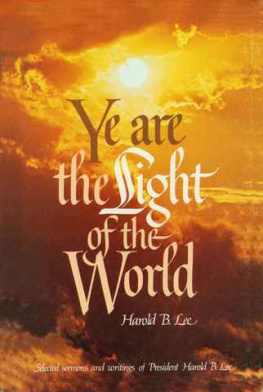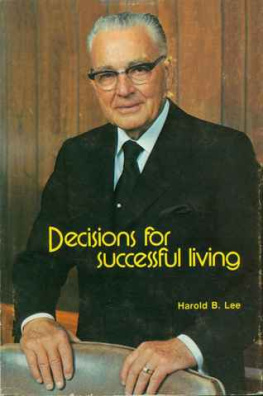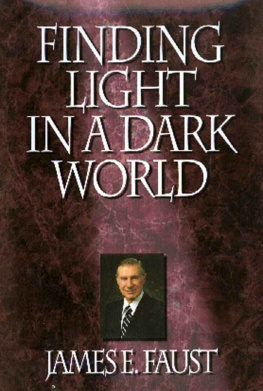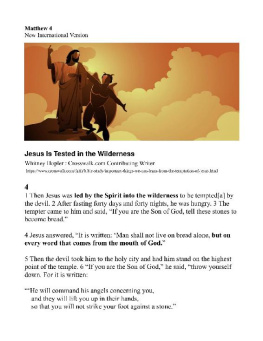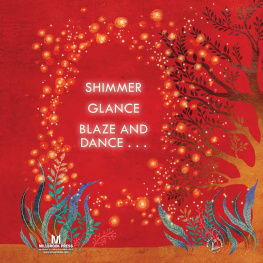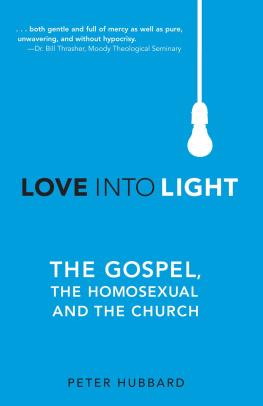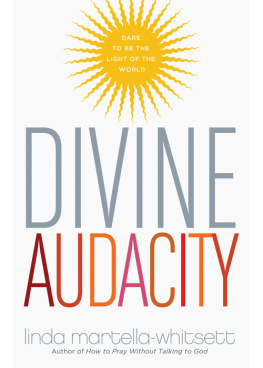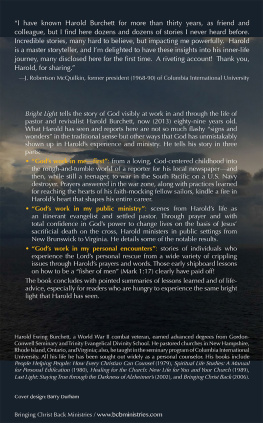Ye Are the Light of the World
Harold B. Lee
1974 Deseret Book Company. All rights reserved. No part of this book may be reproduced in any form or by any means without permission in writing from the publisher, Deseret Book Company, P.O. Box 30178, Salt Lake City, Utah 84130. This work is not an official publication of The Church of Jesus Christ of Latter-day Saints. The views expressed herein are the responsibility of the author and do not necessarily represent the position of the Church or of Deseret Book Company. Deseret Book is a registered trademark of Deseret Book Company.
PRESIDENT HAROLD B. LEE PROPHET, SEER, AND REVELATOR
As sons and daughters of the living God, we stand united in tribute to the living prophet. Since Eden, man has called His chosen servantsmen of faith and wisdom who rise above the sins of the world by mastering themselves, their lives perfected in virtue by earthly trial so are prophets raised up in the necessity of time to join this line of inspired men.
People of all nations cry for leadershipnot leadership of oppression or bondage, but the divine leadership of Christ's church, where men are foreordained to lead God's children from sin into celestial glory. That leadership requires years of preparation and celestial refinement. For possession of those keys of peace in this last dispensation of time, the keys that unlock modem miracles and usher in Christ's Millennial reign, a man must be chastened of God.
Given life in a small world where the things
of man were smaller still
raised up at first by candlelight and always by gospel light
to be a man while still a child of God
made strong by a loving father's design
tempered and mellowed by youth and placed before mountains
on which to strengthen his feet
then given a burden to bear alone with the light
of an earlier life to show the way
encircled again
given future light
and a call from an earlier home
Called from the simplicity of farms and fields to stand in the upper rooms of the temple, where the veil is thinnest, comes such a man, whose life is a testimony that speaks the praises of God. This is a man who is more than a man a man bearing Israel's prophetic inheritance, one of God's choicest sons. Thanks be to God that we live in a prophet's time, when his inspired leadership draws us closer to standing in those Holy Places where we prayerfully await Christ's second coming.
(From a plaque presented to President Harold B. Lee by the Associated Students of Ricks College, Rexburg, Idaho, October 26, 1973)
FOREWORD
President Harold B. Lee was born March 29, 1899. He served as president of Pioneer Stake from 1930 to April 6, 1941, when he was ordained an apostle and set apart as a member of the Council of the Twelve. In 1970 he was ordained president of that quorum and set apart as first councilor to President Joseph Fielding Smith. In July of 1972 he became the prophet, seer, revelator, and president of the Church. He passed on to a great reward December 26, 1973.
Although he served a shorter time as president of the Church than any of his predecessors, his contributions to it were great.
He was no ordinary man. His influence in its councils was effective from the beginning. It continued to increase until the day of his passing.
He understood and loved the underprivileged. Addressing them, he said:
I have come to know you intimately. Your problems, thank the Lord have been my problems, because I know as you know what it means to walk when you have not the money to ride. I know what it means to go without meals to buy a book to go to the University. I thank God now for these experiences. I have loved you because of your devotion and faith. God bless you that you won't fail. (General conference address, April 6, 1941.)
In helping them, he made one of his greatest contributions, developing and directing the Church welfare program. He made other monumental contributions in the home teaching and family home evening programs and in Church correlation.
All the programs of the Church operative during the nearly thirty-three years he served as one of the General Authorities bear the mark of his prophetic genius. The spirit in which he pursued his labors is revealed in the following quotation from the address he gave at the general conference in which he was first sustained as a member of the Quorum of Twelve Apostles, April 6, 1941.
"On April 20th, 1935," he said, "I was called to the office of the First Presidency.... My humble place in this [welfare] program at that time was described. I left there about noon ... [and] drove ... to the head of City Creek Canyon. I got out, after I had driven as far as I could, and I walked up through the trees. I sought my Heavenly Father. As I sat down to pore over this matter, wondering about an organization to be perfected to carry this work, I received a testimony, on that beautiful spring afternoon, that God had already revealed the greatest organization that ever could be given to mankind and that all that was needed now was that that organization be set to work and the temporal welfare of the Latter-day Saints would be safeguarded." (Ibid.)
He believed that the basic fundamental revelations made provision for the solution of all our problems. He began his search for every solution by finding out, through prayer and searching the revelation, what the Lord had to say on the subject.
He loved the youth with a divine compassion. He sorrowed over the rebellious and unrepentant and rejoiced over the returning prodigal.
During 1945 he delivered a series of radio addresses, titled Youth and the Churchwhich was later published in book formin which he developed the thesis that the sure solution to youth's problems is to be found in the gospel of Jesus Christ. In the final chapter he writes: "During the preparation of this book, I have lived intimately with the problems of youth. I have tried to lead you to see and understand how the restored principles, powers, and ordinances of our glorious gospel dispensation may be applied to the lives of the youth of today." (Youth and the Church, p 233.)
President Harold B. Lee was one of the most powerful men in modern Israel. The source of his strength was in his knowledge that he himself lived in the shadow of the Almighty. To him, his Heavenly Father was a senior partner, daily giving him guidance. Few indeed have had contacts with heaven as direct and regular as did he. He knew that the gospel of Jesus Christ is eternal truth.
"The dispensation in which you and I live," said he, "is intended to be a demonstration of the power and effectiveness of the gospel of Jesus Christ to meet [our] everyday problems here and now." (General conference address, October 1941.)
This conviction came to him out of his own experiences, as witness the following:
I know there are powers that can draw close to one who fills his heart with ... love.... I came to a night, some years ago, when on my bed, I realized that before I could be worthy of the high place to which I had been called, I must love and forgive every soul that walked the earth, and in that time I came to know and I received a peace and a direction, and a comfort and an inspiration, that told me things to come and gave me impressions that I knew were from a divine source. (General conference address, October 1946.)
In responding to his call to the Council of Twelve, he said:
Since nine o'clock last night I have lived an entire lifetime in retrospect and in prospect.... Throughout the night, as I thought of this most appalling and soul-stirring assignment, there kept coming to me the words of the Apostle Paul, ... `Let us therefore come boldly unto the throne of grace, that we may obtain mercy, and find grace to help in time of need.' ... Therefore I shall take the word of the Apostle Paul. I shall come boldly unto the throne of grace, and ask for mercy and His grace to help me in my time of need. With that help I cannot fail. Without it I cannot succeed. (General conference address, April 1941.) Humility before God and fearlessness before men was the key to his character. His ministry was characterized by an uncommon originality and daring. He was not hampered or restricted by worldly learning nor the ways of men. We who sat with him daily were frequently startled by the scope of his vision and the depth of his understanding. With forthrightness, he separated the wheat from th chaff and came directly to the truth.

